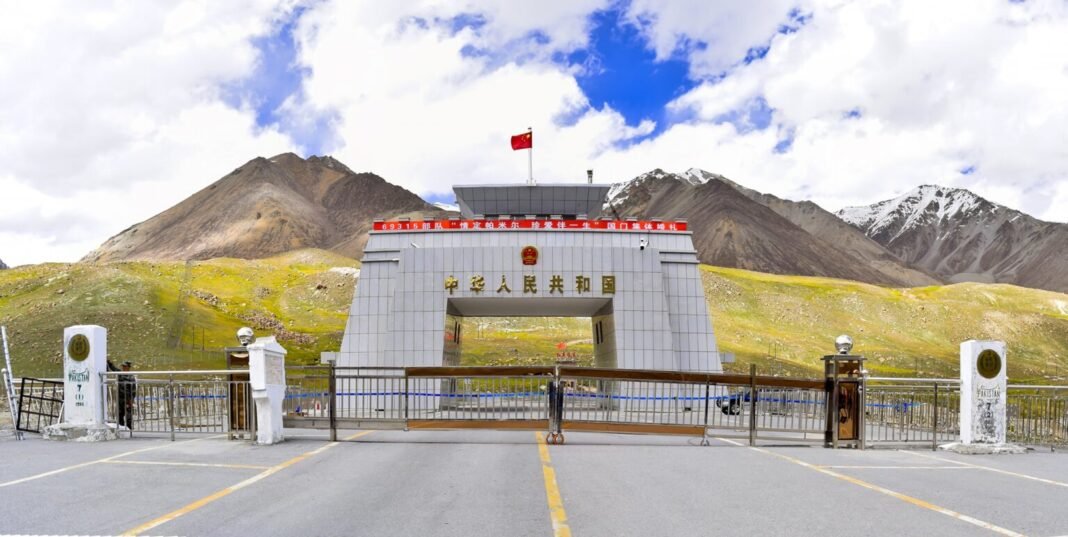On April 1-2 this year, Pakistan’s top military and civilian brass and academia from within Pakistan and around the world attended the second session of the Islamabad Security Dialogue to introduce a new shift in the country’s policy. The attendees included former Prime Minister Imran Khan and Chief of Army Staff General Qamar Javed Bajwa. This shift has pivoted around the country, transforming it into a hub of economic connectivity in South Asia. In his address, the prime minister outlined a new notion of comprehensive national security and an anti-elitist model of governance erected on a strong economy.
Pakistan has long been a victim of what some scholars term the “geopolitical curse.” Lying at the crossroads of South and Central Asia and providing a natural route to the Middle East, Pakistan found itself enmeshed in the US-Soviet scuffle during the Cold War, with the US attempting to protect the capitalist system from the marauding waves of Soviet communism. Its traditional nemesis on its eastern border, India, also played a crucial role in creating a garrison environment for Pakistan. In order to stand up to a bully like its eastern neighbor, Pakistan found protection in the lap of a powerful ally—the US. Military security, therefore, defined Pakistan’s foreign and economic policies in the early years of its existence. Development and the geo-economics, thus, were relegated to the second tier.
For this reason, there has been an overreliance on the geostrategic importance of the country that has blurred the vision of the country’s policymakers enough to overlook the immense geo-economic potential of Pakistan in South Asia. Now, as per the opinion of former Prime Minister Imran Khan, the realization that the vast reservoir of the geo-economic potential of connectivity between South, West, and Central Asia needs to be tapped has crept into the power corridors of Pakistan.
Indeed, geo-economics has the potential to flip the script. Definitions of the term may vary, but in the general sense, it means cashing in on the geography of Pakistan to become a regional hub of connectivity and integration and ultimately achieve sustainable development, peace, and stability in South Asia. The geo-economic vision centers on regional integration and the collective pursuit of sustainable development in an environment of peace and harmony.
However, there are certain bulwarks in the way. Internally, these bulwarks might take the shape of political dissent from a divisive polity; weak institutions; declining exports; extreme protectionism; a plummeting cotton industry; and the persistent energy crisis, which has been exacerbated even more in the aftermath of a Covid-stricken global economy. On the external front, such bulwarks might emanate from an unstable Afghanistan in the post-withdrawal era; continuing bitter relations with India; the Sino-US rivalry that continues to enmesh Pakistan in Cold War politics; and a tarnished image because of being on FATF’s grey list.
In order to make its “new geo-economics” work, Pakistan’s economic makeup, both internally and on the external front, needs a sea change.
Making a mention of Gilgit-Baltistan is indispensable while talking about Pakistan’s potential as a hub of geo-economic activity in the region. Being the gateway for one of the region’s most critical developmental ventures—the China-Pakistan Economic Corridor (CPEC)—Gilgit-Baltistan is not too far from becoming the world’s geo-economic center. CPEC, an infrastructure project, is a vital roadway connecting Central Asia, South Asia, and the Middle East. Being the entry point of China’s multi-billion dollars project in Pakistan, Gilgit-Baltistan is crucial for supporting Pakistan’s faltering economy. However, it needs smart initiatives to cash in on the immense potential of this asset. If managed smartly, it can serve as a lifeline for the economies of not only Pakistan but that of the Central Asian Republics and Afghanistan as well. Additionally, it can serve to promote integration and mutual development in South Asia, as per the new geo-economics vision. Acting as a route for commercial convoys, oil and gas pipelines, and transport to and from China—the world’s second largest economy—Pakistan can gain economically by attracting huge direct foreign tourism investment inflows.
Yet, in order to prosper in real terms, acting only as a transit state is not enough. There is a need to expand the country’s exports as Pakistan will not prosper only by transporting the goods of other countries. Exports, indeed, are the missing piece of Pakistan’s economic puzzle. In addition to diversifying the export base of the country, the geo-economic instruments—such as trade agreements, tariff policies, and transport pacts—must be employed to get more domestic goods out to more markets abroad. Gilgit-Baltistan too can add to the national economy by exporting fresh and dry fruits and handicrafts. It already earns billions of rupees from the trade of almonds every year.
Tremendous development of countries like China, Japan, the US, and Korea has shown that development comes through liberal economic practices. In Pakistan, the profitability of major industries, such as automobiles, fertilizer, and sugar, stems from anti-competitive protectionism and generous subsidies, ruling out any possibility of innovation and increased productivity. Therefore, providing a healthy competition to the local industries by lifting some, if not all, of the import barriers, along with an uninterrupted supply of electricity and technical as well as structural support to domestic manufacturers, are some of the main prerequisites to making a shift to a geo-economic policy posture.
On the external front, assisting its neighboring Afghanistan to evade any future civil war after the departure of the United States, cooling down tensions with India, and striking a cautious balance in its relations with the U.S. and China ought to be the main policy concerns of Pakistani policymakers. For, an exports-based and transshipment-driven economy cannot flourish in an unstable environment marred by bitter hostilities and perpetual bilateral conflicts.
Nonetheless, a true shift to geo-economics must start with sweeping reforms at home. Until the rules of the game are changed, Pakistan will simply lurch from one hurtful experiment to another as the damage to its stature as a viable state becomes irreparable and its economy goes down even further!




